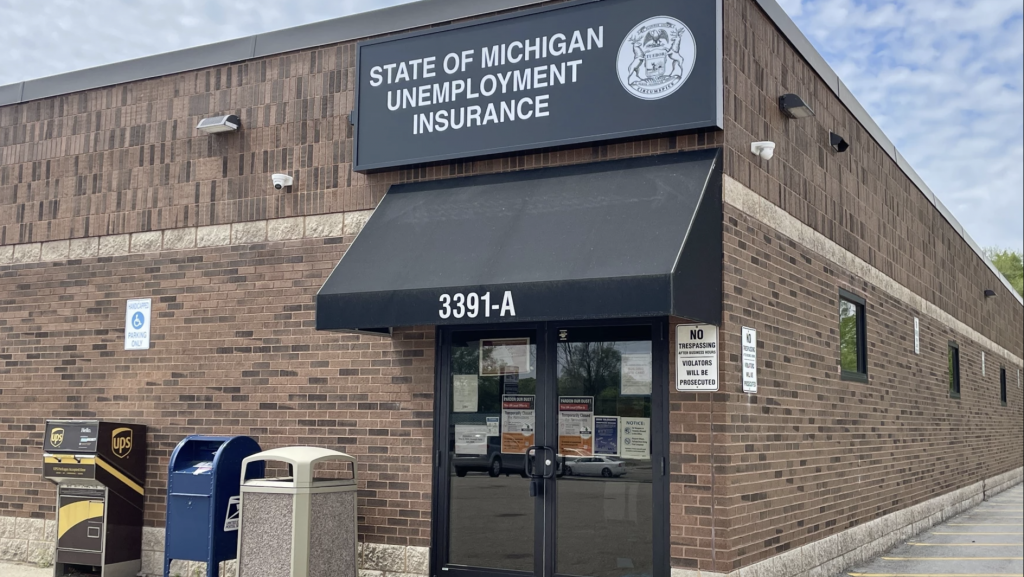Whitmer signs bills to extend jobless benefits to 26 weeks
Rick Pluta December 24, 2024Whitmer said Michigan is one of just a dozen states that offer unemployment benefits that are capped at less than 26 weeks.

A Michigan Unemployment Insurance Agency office in Grand Rapids.
Gov. Gretchen Whitmer signed bills Monday that will expand unemployment benefits for people who are out of work.
Over three years, the maximum benefit will increase from $362 per-week to $614 weekly. Also, the maximum time period to collect benefits would increase to 26 weeks from 20 weeks.
“With winter just around corner, Michiganders are still juggling high costs and a competitive job market,” Whitmer said in a statement released by her office. “These bills will put money back in people’s pockets so they can keep a roof over their heads, pay the bills, get a good-paying job, and put food on the table.”
Whitmer said Michigan is one of just a dozen states that offer unemployment benefits that are capped at less than 26 weeks.
Then-Governor Rick Snyder and the Republican-led Legislature rolled back the cap to 20 weeks in 2011, and business groups say this will encourage more people to delay returning to work during a worker shortage. This legislation would not likely have gotten to Whitmer’s desk after this term as Republicans will take control of the House next year.
Michigan AFL-CIO President Ron Bieber cheered the new laws.
“This victory for working people has been over a decade in the making,” he said in a statement released by the governor’s office. “… Finally, Michigan’s unemployment benefits will be restored to full strength after years of lagging behind our midwestern neighbors and practically every other state in the country.”
Business groups that did not support the legislation said they are concerned about the impact of the benefits expansion.
Small Business Association of Michigan President Brian Calley – who was Snyder’s lieutenant governor when the benefits rollback was signed – said an emergency order extending benefits during COVID-19 had the unintended effect of keeping people out of work longer then necessary.
“The extended higher unemployment level made it much more possible for jobs to go unfilled for longer periods of time,” he told Michigan Public Radio. “So, there is some concern, and we will be watching labor force participation very closely.”
Calley said he also would have preferred to see a longer recovery period for the trust fund that finances unemployment benefits. Employers pay into the trust fund. Calley said he also would have liked to see the Michigan Unemployment Insurance Agency complete a technology upgrade before a decision was made to increase benefits.

Author
-
 Rick Pluta has been covering Michigan’s Capitol, government, and politics since 1987.
Rick Pluta has been covering Michigan’s Capitol, government, and politics since 1987.
